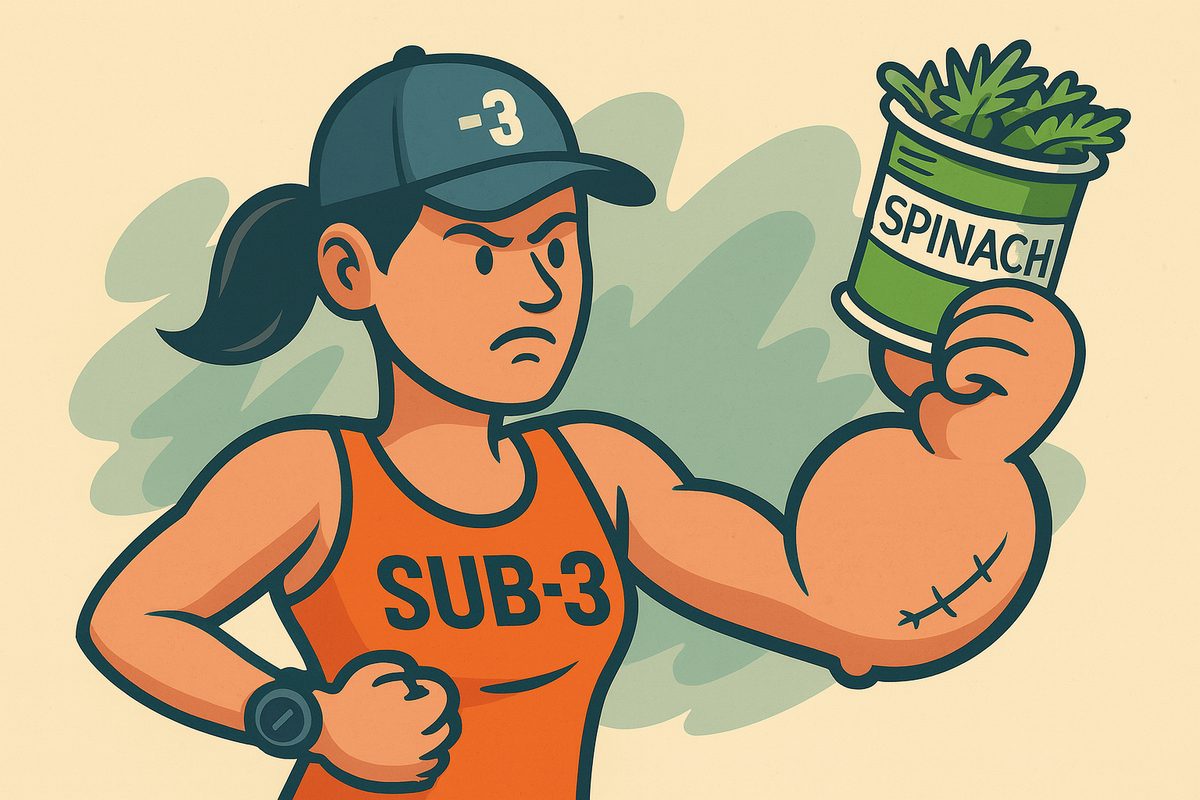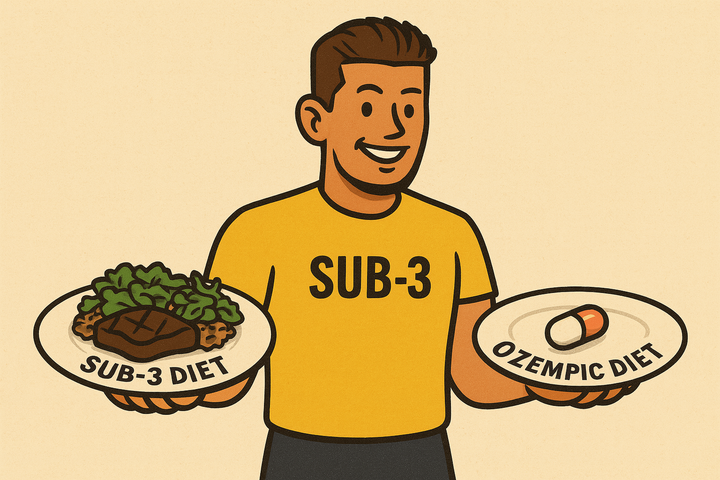Why sub-3 runners need to get enough iron in their diet
Iron deficiency is common in endurance athletes – and it can wreak havoc on your energy, mood and performance. Don’t leave it unchecked.

Over the past year, as part of a broader health kick, I’ve cut back a lot on red meat. Chicken and fish are still non-negotiable, but I now only have red meat once a week – usually a steak or in one of my wife’s delicious Shepherd’s pies.
I tried to compensate by eating more spinach, but that’s easier said than done – especially when you’re out and about. And let’s be honest: few of us wolf down spinach with Popeye-level enthusiasm. It was only after three separate running friends mentioned they'd recently had blood tests showing significant iron deficiency that I started to take it seriously. All three described near-identical symptoms – heavy legs, fatigue, lack of motivation – and all said iron supplements had transformed their training.
That sent me back to my copy of Advanced Marathoning, which devotes a whole section to iron. It turns out marathoners are especially prone to low iron levels – not just because of diet, but because of what running does to the body:
“Runners may have slightly lower hematocrit and hemoglobin levels than do sedentary folks due to increased blood volume. Runners may have relatively low iron stores due to low iron intake, foot-strike hemolysis, damage to red blood cells from muscle contraction, and iron loss through sweat and urine and through the gastrointestinal system.”
In other words, we lose iron not just through what we eat – but through the very act of running. The more we run, the more susceptible we become. This is especially common in vegetarian and vegan runners (or as Pfitzinger and Douglas put it, the “No-Meat Marathoner”).
And the symptoms?
“If you have low iron, first, you'll be dragging. Your heart rate may be elevated, and your enthusiasm for running will have sunk. You may also feel cold much of the time and have generalised fatigue throughout the day.”
Of course, those symptoms could be caused by many things – including overtraining. So don’t just guess. If you suspect low iron might be an issue, go and get a test. It’s relatively cheap and can be hugely helpful in ruling it in or out.
Personally, I now take a gentle iron supplement 3–4 times a week, usually on days I haven’t had red meat. I try to take it alongside vitamin C and avoid caffeine around the same time, as both factors can affect absorption. It’s been an easy routine to build, and I haven’t had any gastrointestinal issues – but again, this is individual.
Where possible, diet is still best. Iron-rich foods include:
- Red meat (especially liver)
- Dark leafy greens (like spinach, kale and chard)
- Lentils, beans and tofu
- Fortified cereals and wholegrains
- Pumpkin seeds and dried fruit
The recommended daily intake for endurance athletes is often higher than the general population – especially for women. But don’t just start guessing and self-medicating. Get tested. Know your levels. And if you do need a boost, the fix is often simple – and the performance gains can be profound.
Enjoyed this article? Help keep Sub-3 running — support us with a coffee.
To help fund the running of the site, Sub-3 is an Amazon Associate and earns from qualifying purchases. We only recommend gear or kit that has genuinely helped in our own running and that we believe is worth considering.



